
Transformative Education
Transformative Education in the Jesuit Tradition
Our Mission
We are Chicago's Jesuit, Catholic University-- A diverse community seeking God in all things and working to expand knowledge in the service of humanity through learning, justice, and faith.
As a Catholic and Jesuit University, Loyola is guided by and seeks to articulate a living intellectual tradition. All of Loyola’s undertakings—its teaching, research, and service—are infused with a conviction regarding the sacred character of all reality, the dignity of every human person, the mutually informing dynamic between faith and reason, and the responsibility to care for those who are suffering most in our world. And Loyola’s Jesuit pedagogy is informed by the conviction that faith, knowledge, and the promotion of justice are intrinsically related: they are not three independent aspects of education that are merely juxtaposed, but rather they form a triad in which each is dynamically related and incomplete without the others. The University invites those of all faith traditions who share this outlook to join in pursuing its goals.
What is the twofold intellectual tradition of Loyola?
This twofold intellectual tradition encompasses a rich record of discursive knowledge—or theoria—developed by intellectuals across the centuries. It includes the creative word—or poiesis—of artists who have expressed their Catholic vision through architecture, painting, sculpture, poetry, music, and dance. It also involves the social action— or praxis—of prophets and activists who generously devoted their lives to making the world a home for all. The more one reflects on this rich tapestry, the clearer it becomes that this rich tradition is a very diverse and dynamic reality, nothing like an ancient family heirloom, to be kept in a safe-deposit box. Rather, the Jesuit and Catholic tradition is ever evolving in new and unexpected ways; we can all learn from it and all contribute to it. This tradition both elicits participation and engenders personal and communal transformation.
Adapted to the context of today’s world
What are the five ‘hungers’ we identify and choose to foster in our students?
A JESUIT EDUCATION SEEKS to address the world in which we actually live as well as the hopes and challenges of that world. Indeed, one can view the current situation in the world against a backdrop of a whole range of key desires, really, “hungers” of the contemporary world for wholeness, peace, and justice for all. These are hungers that life and learning have helped us to identify in ourselves as well as in our students, hungers that our kind of education hopes to stir and meet:
- A HUNGER FOR INTEGRATED KNOWLEDGE: Students today appreciate having so much information at their fingertips, and yet, they long for a more robust formation that integrates their intellectual, affective, and volitional capacities and helps them to appreciate how the varied subjects and disciplines fit together reaching depth of understanding;
- A HUNGER FOR A MORAL COMPASS: Students today experience the limitation of a moral discourse that focuses almost exclusively on individual rights while almost ignoring the responsibilities we have to each other; not looking for recipes, our students display desire to acquire an ethical foundation and a method for moral discernment;
- A HUNGER FOR COMMUNITY: Students today value building meaningful community with genuine connectedness that has them engaged civically; they display a new strength of passion and commitment to use their gifts and talents for others; there is a sense among them that they have found their voice as change agents, and now they long to participate more actively, creating more good in the world;
- A HUNGER FOR A GLOBAL PARADIGM: Having seen the limitations and the dangers of ethnocentrism, our students want to embrace a more cosmopolitan perspective; they see very clearly that each of us dwells in many communities, from the community of our birth to the community of the human family, and we have duties to all of them;
- A HUNGER FOR AN ADULT SPIRITUALITY: Tired of the polarized debates between a lifeless secularism, on the one hand, and a dogmatic fundamentalism, on the other, our students long for a spirituality that sustains and empowers, one in which there is ample room for both faith and reason.
This educational mission of the University lies precisely in the study, debate, conversation, and discovery that help students identify these hungers, form their own assessment of them, and decide how they might address them for themselves and the world they seek to shape.
An education that empowers and transforms
What are the marks of a true education?
AS ENGLISH WRITER G.K. CHESTERTON once said, “Every education teaches a philosophy of life, if not explicitly, then by suggestion, by implication, by atmosphere. If the different parts of that education do not cohere or connect with each other; if the educational process as a whole does not combine to convey a coherent view of life; if, in the end, it does not empower and transform, then, it is not education at all.” A transformative education is one in which the student is incrementally invited to engage life, to reflect upon it and, then, to be of service to our world.
Strategic Themes
EXPANDING HORIZONS AND DEEPENING KNOWLEDGE: The University is the steward of a long and deep tradition of learning and knowledge. It has a responsibility to this living tradition of which it is a part and whose continuing significance it fosters in ever-new ways. Students who come to Loyola can expect to be enriched and broadened by that tradition and, at the same time, be challenged by it to lead extraordinary lives that are relevant in new and different circumstances.
SELF-APPROPRIATION: Beginning with an appreciation of one’s gifts and the progressive discerning of how best to use them in practical ways and diverse settings are both the starting place and the trajectory of an educational process that we call self-appropriation. When students arrive at the University, they often have not yet fully identified their gifts and vocation. It often happens that their thoughts, actions, and choices are being dictated by convention or by mimetic group pressure. A transformative pedagogy is one that helps students name their gifts, formulate their convictions, and ultimately take full ownership of their own lives. A transformative education, then, is one that transforms students in order that they might transform the world.
DIALOGUE: Students who come to Loyola can expect to be challenged to a kind of dialogue and diversity that is authentically transformative. At Loyola, diversity does not simply mean that all are welcome and can have a seat at the table. More than that, it means that those who have a seat at the table should be prepared to be changed and transformed by their encounter with each other and by the values that pervade Loyola’s educational experience. A transformative pedagogy trains students for dialogue and conversation, providing a way to tackle the root of so many crises that face humanity today. It is also a way of bridging the divides of gender, race, ethnicity, and socioeconomic class.
MORAL RESPONSIBILITY: There are clear moral dimensions to the economic, political, social, and environmental crises our world is currently facing. Many professionals—lawyers, bankers, accountants, politicians, academics, and the entire chain of intermediaries, including Church leaders—have failed to detect or deter the wrongdoing of our institutions; instead of exercising their moral duty, many chose the path of silence, convenience, and complicity. It is more important than ever that our students receive a strong foundation in moral discernment in order that they can act responsibly in all their relationships and pursue the common good.
CARE FOR THE PLANET: One of the main goals of a transformative education is learning to live in right relationship: right relationship with oneself, right relationship with others, right relationship with God, and right relationship with our environment. Each of these fundamental relationships requires sensitivity, understanding, and care. Since the ecological problems we are facing are related to the problem of consumerism, which devours the resources of the earth in an excessive and disordered manner, our aim must not only be theoretical clarity but also a more responsible lifestyle. The University has a decisive role to play in fostering new attitudes and new practices of good stewardship and peacemaking within the context of a global paradigm.
FAITH AND JUSTICE: The overriding purpose of the Society of Jesus, namely “the service of faith,” or its communication and deepening, must also include the promotion of justice, a goal shared with many religious traditions. So central to the mission of the Society was this union of faith and justice that it has become the integrating factor of all that Jesuits and their institutions undertake. But it is not enough simply to juxtapose these two terms; it is essential to hold the two together. Because, in the end, injustice is rooted in a spiritual problem and its solution requires a change of heart. More than ever, we face a world that has an even greater need for the faith that does justice.
Ignatian Methodology
What are the four processes of knowing?
Transformative education is not simply a content; it is also a method designed to foster continual growth in the hearts, minds, and will of the students. This method bears no resemblance to an older approach that stressed dissemination where instructors merely relay or convey information. Rather, Ignatian pedagogy aims at assisting learners to undergo a series of internal transformations in how they go about understanding themselves vis-à-vis their own inclinations, passions, biases, and spontaneous reactions. Hence, the need arises to learn how to make one’s own internal operations more discerning.
The early Jesuits struggled to describe this transformative process in the Ratio Studiorum and, over the years, have done so in different ways. The accounts may vary, but there are certain constants in the Jesuit “way of proceeding.” A cognitional way of understanding this Ignatian methodology is to realize that the antidote to self-immersion is self-transcendence. And at least one way of proceeding out of the first condition and into the second is to become more attentive to the different operations one uses, though usually inadvertently, in coming to an answer to a question or to a choice.
In short, an Ignatian pedagogy is one in which the student is challenged to appropriate his or her own process of knowing. The first step in any process of knowing is experience, and the advice of Ignatius would be to become attentive to what one is experiencing, either the experience going on in oneself or in the reality around one. The second step in this process of knowing involves reflecting back on one’s experience and on what has been triggered by way of questions that emerged from such experience. The goal is always to grow in understanding about the questions one is seeking to answer. One is going to have to come to some conclusion about the matter being mulled, including a conclusion about whether an insight that came from one’s understanding holds up under further scrutiny. The third step in this process of knowing is judgment: “yes, this is so” or “no, this is not so” or “I do not know yet what to think.” Finally, the fourth step in the process of knowing seeks to determine what this judgment might call for by way of choice or action and commitment.
The value of sorting out the different moments in the process of knowing is that this makes self-knowledge and self-transcendence more likely. It also does justice to one’s subjectivity while also making objectivity more likely. Another way of putting this is in the language of conversion. Ideally, there are different kinds of conversion latent in a greater advertence to these operations of consciousness: intellectual, moral, and religious. In the first of these, one lets oneself be informed by reality; in the second, one moves from acting on personal wants and satisfying one’s own needs to acting on values and making responsible choices. Religious conversion consists in being moved in one’s thinking and choosing by love. Any one of these three conversions or transformations can come first with the other two following.
Mediations
Jesuit education is well known for its clarity in matters of “means” and “ends.” In great part, this insight flows directly from the Spiritual Exercises of St. Ignatius Loyola in which he begins with a clear presentation of the purpose for which all people are called into existence (“to praise, reverence, and serve God”) and then, based on that conviction, he explains how “all other things” are valuable in relation to how they foster or inhibit one’s essential purpose.
With this vision of transformative education before us, it is now imperative to reflect on the principal mediations for all this to occur. Many of the desired transformations happen in the classroom. But others take place in service-placements around the city, through activities on campus, or in the library, chapel, retreat and ecology campus, or residence hall. The transformative moments and contexts will vary from student to student. What matters most is that students encounter within every component of the University community supporting a spirit of transformation and a culture focused on learning, justice, and faith.
What are the various channels for internal and external transformation within the University?
Loyola Experience
Our undergraduate program of learning is the Loyola Experience—a sequential and developmental approach to integrated academic, spiritual, and social activities. Students use their gifts, talents, and ambitions to shape their own Loyola Experience in partnership with faculty and staff who challenge and support students through graduation and beyond. Cura personalis (care for the whole person) is our common commitment, and magis (striving for excellence) is part of our shared vision. Care for self, others, and community are the pillars of a Student Promise, which inspires students to live out core values that have shaped our University since its founding.
Loyola’s Core Curriculum serves as the anchor of the Loyola Experience, providing the breadth of learning that is foundational for undergraduate education, in the Jesuit tradition. The Core is the primary means by which our pedagogy’s goals are achieved and the aforementioned strategic themes and our students’ ambitions are integrated throughout the curriculum.
The Majors provide depth for students to explore, understand, imagine, and create within a particular context or field of study, developing the habits, disciplines, and skills that are needed to succeed in that area. Within the major, training in a particular intellectual discipline or practice is paramount. Loyola provides a variety of means to achieve this training: internships, service-learning, capstone courses, etc. These forms of experiential learning are organized from within each field or discipline in order to provide the appropriate degree of specificity. The more discipline-specific they are, the more likely they are to have a lasting impact.
If truly successful, the Loyola Experience should result in a radical transformation not only of the way a student sees him or herself but also in the way the student perceives, thinks, and acts in the world—driven more towards justice. To accomplish this, a Loyola education must be more than a set of degree requirements; it must be an integrated curriculum designed to produce ever-deepening reflection and new habits of heart, mind, and will. It should enable students to develop the character and values that will guide them throughout their lives.
Campus Culture
A critical component of the Loyola Experience is student development that happens beyond the academic enterprise. Certain units of the University, from Student Affairs to Mission and Ministry, concentrate precisely on the quality of student life outside the classroom and on building a vibrant community on campus. This community is formed through clubs, athletics, service opportunities, retreats and often simply by taking advantage of our wonderful city together.
With the valuable help of faculty, staff, chaplains, and residence hall assistants, a community of shared preoccupations and aspirations is formed. Such a community is essential to transformative education because, in the end, there is very little that an individual can do alone. We need to learn to form friendships and to build alternative networks of belonging that are oriented toward the transformations we all desire. Therefore, on Loyola’s campus, we strive to create a culture where students do not feel like isolated individuals but rather members of a community that encourages respectful discourse and debate, that celebrates hard work and accomplishments, and that promotes social justice and responsible freedom.
As a Jesuit and Catholic university, Loyola firmly believes that God’s grace is at work in each of the major religious traditions, which is why we are pleased to serve as a home for all of the faiths. One of the many beautiful features of Loyola is that it is a place where a committed community can be formed among people from different religious and ethnic backgrounds. This is precisely the kind of community our world needs today: a community that can look beyond the specifics of its own tradition in order to learn, study, celebrate, and pray with all people of good will who are ready to rebuild and renew our world together.
In order to sustain this transformative community, Loyola will continue to create spaces on campus for purposeful living and learning. All buildings, including residence halls, classrooms, and student centers, as well as outdoor campus spaces, will be welcoming and conducive to study and collaborative learning, with a measure of a deep respect and care for the environment.
Graduate Education
Graduate and professional education are geared towards inculcating the mastery of specialized knowledge and skills through which a student who has already identified his or her vocation can attain the professional competence, leadership skills and sense of responsibility that are needed to make a significant impact in the world. While Jesuit universities began as undergraduate institutions, they later applied the spirit and methods of transformative education to graduate and professional education. Our graduate and professional schools are very discipline-specific, but they embody and employ the same Jesuit pedagogy, which is person-centered and society-centered, and which empowers and transforms. Students at this level are encouraged to refine and test their calling, and to reflect continually on the questions “for whom” and “for what” as they prepare for their careers. In their major projects or research, they are encouraged to ask: How will this work contribute to or impact the communities that it serves? How might it contribute to society and to the struggle for peace and justice?
Research
Loyola is committed to the personal transformation of its students and faculty as well as to the creation of a just social order. But real and lasting change is not achieved by direct action alone. Many of the problems facing our world will never be adequately addressed if we merely replicate former solutions.
It is important that we caution our students, at both the undergraduate and graduate levels, about the excessive pragmatism that can often permeate the American culture. Our world needs longer-term solutions, not just quick fixes, and this requires careful, scholarly research. Research needs to be evaluated not with the short term lens of immediate efficacy but within a larger and more generous horizon that both enriches and transforms our lives as human beings and communities. Therefore, Loyola fosters the kind of research that really matters for making our world a home for all.
Furthermore, research at Loyola is informed by a characteristically Catholic confidence in the unity of truth; that is, the conviction that truths of reason are ultimately compatible with truths of faith. For this reason, intellectual inquiry at Loyola is animated not by a fear of error but by a love of truth and with a deep commitment to academic freedom.
At the same time, research at Loyola is informed by an ongoing engagement with a living Catholic intellectual tradition that serves as a touchstone or point of reference. The point is not that researchers at Loyola need to be working on a topic that is identifiably Catholic, nor is the point that people doing research are under the obligation to agree with every element of that tradition. But faculty researchers should be willing and able to articulate how their work elaborates upon the Catholic tradition and how it contributes to the common good.
Increasingly evident to scholars and others today is the necessity of cross-disciplinary inquiry in the discovery of truth. Our institutes and Centers of Excellence offer a privileged place for interdisciplinary research, a space where faculty and students from different departments or schools can converge and collaborate. They represent the best in Jesuit education and provide an effective vehicle for the University, by means of its research, to play an active role in deepening our grasp of specific problems and in imagining alternatives.
Our Focus on Justice
A significant portion of our transformative agenda is about helping students create lives of meaning and purpose. This isn’t possible without the University organizing itself as more than a collection of schools, departments, and programs, but rather as a “social project.” We must see Loyola as “a transformative agent,” an institution that “seeks to insert itself into a society, not just to train professionals, but in order to become a cultural force advocating and promoting truth, virtue, development, and peace in that society” (Nicolás, 2010:7). This is a vision that challenges us to expand our understanding of the social realities of the poor and to employ the vast treasure of our Judeo-Christian humanistic tradition—along with our experience and expertise in accompaniment with people in need—in a collective effort to improve the condition of those people in our community and world. Our conversation is further contextualized by a sense of urgency, felt on the national and international level, for an engaged pedagogy to guide our teaching and for a renewed commitment to interdisciplinary approaches to solving societal and environmental problems. We believe there is a need for a new kind of university committed to going beyond its walls to include people needing support and assistance as well as those seeking justice.
Our focus on social justice is long-standing, embodied in myriad ways across the University—in the work of individual researchers, pedagogical initiatives, academic programs, Centers of Excellence, and more. In the words of Peter-Hans Kolvenbach, S.J., (2000) the former Superior General of the Society of Jesus, “Every Jesuit academic institution of higher learning is called to live in a social reality ... and to live for that social reality, to shed university intelligence upon it and to use university influence to transform it.” Loyola University Chicago is certainly grounded in a particular social reality— its historic mission and role in Chicago; its Jesuit and Catholic identity; its own history; its rich community of faculty, staff, students, alumni; and the current cultural context in which it is immersed. Given the many new challenges faced by this urban community and the world in which we live, and the urgency of certain social and environmental conditions, we ask ourselves if that mission needs to be expanded and deepened, once more, for the greater honor and glory of the Creator.
How do we, as a university, live for this social reality and use our influence to transform it? Said another way, how might Loyola become a beacon of hope for others and an instrument for preparing young men and women for the project of creating a more just, humane, and sustainable world? In what ways can Loyola’s vast talent, its faculty, and its resources be of greater service to those less fortunate and those on the margins of society, as well as people who work for a more sustainable and just world? These are the critical questions that will continue to shape our transformative agenda that helps Loyolans lead extraordinary lives.
Refections
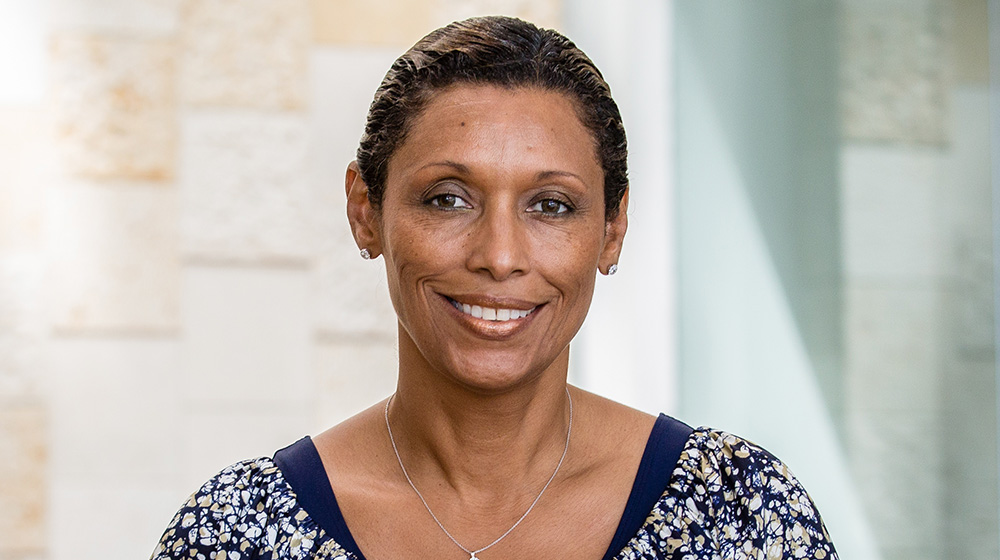
Jackie Taylor Holsten
JD ’99 • Board of Trustees
“Whether we know it or admit it, we are all searching for an opportunity to make a difference. The community at Loyola, which is dedicated to the Jesuit mission, has encouraged and inspired me to contribute every day and to realize we all make a difference.
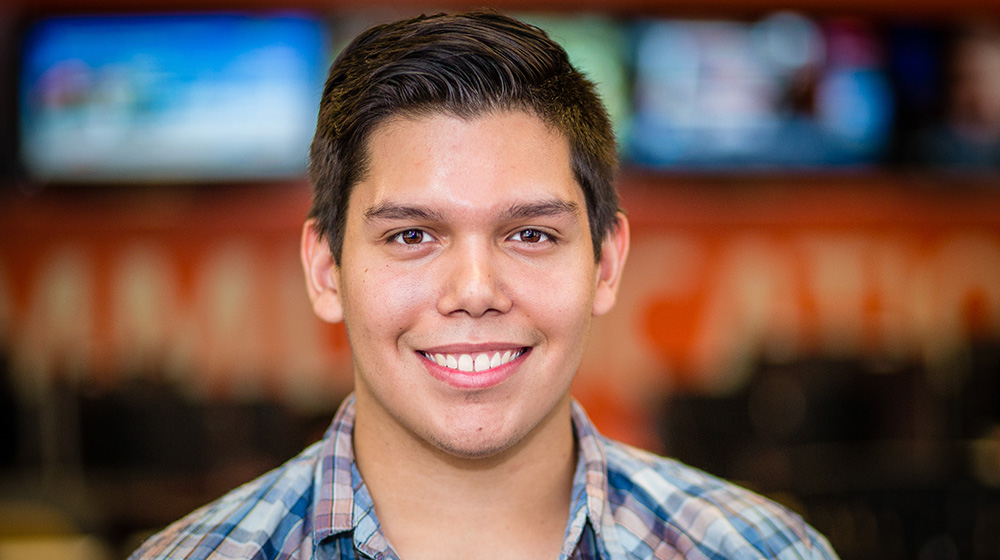
Zachary Enriquez
Loyola Student
“The Jesuit philosophy is designed to benefit the many through the realization of potential within the individual. Jesuit education has started me on a path of personal growth. I am trying to become the best version of myself that I can be, so that others can grow, learn, and prosper alongside me.
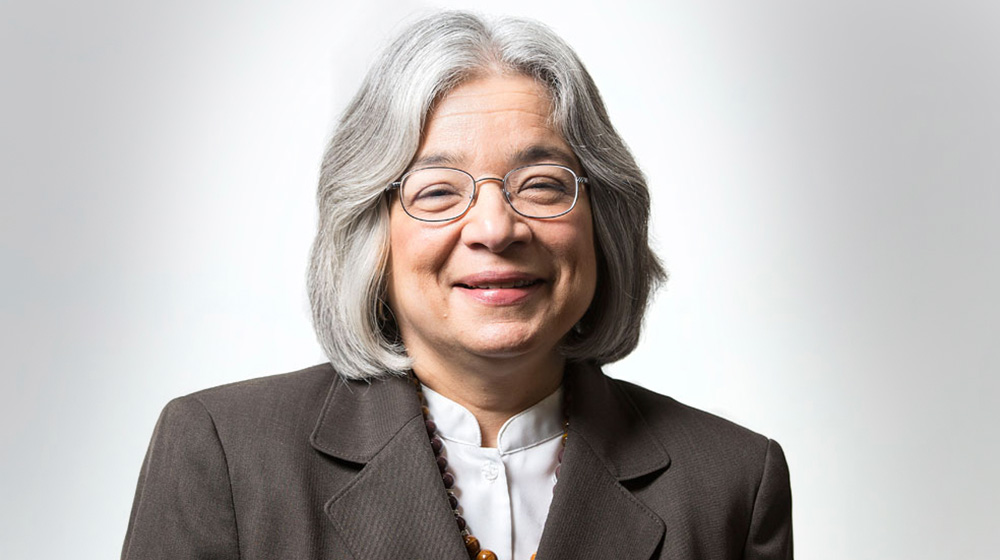
Marian Allen Claffey
MUND ’76, MED ’84, PHD ’08 • Staff Member
“Among the many outcomes emerging from my Jesuit education and Loyola experience is a profound sense of responsibility—an obligation to contribute to a greater good and to challenge others to do the same. This is true of my experience as both student and staff member.”
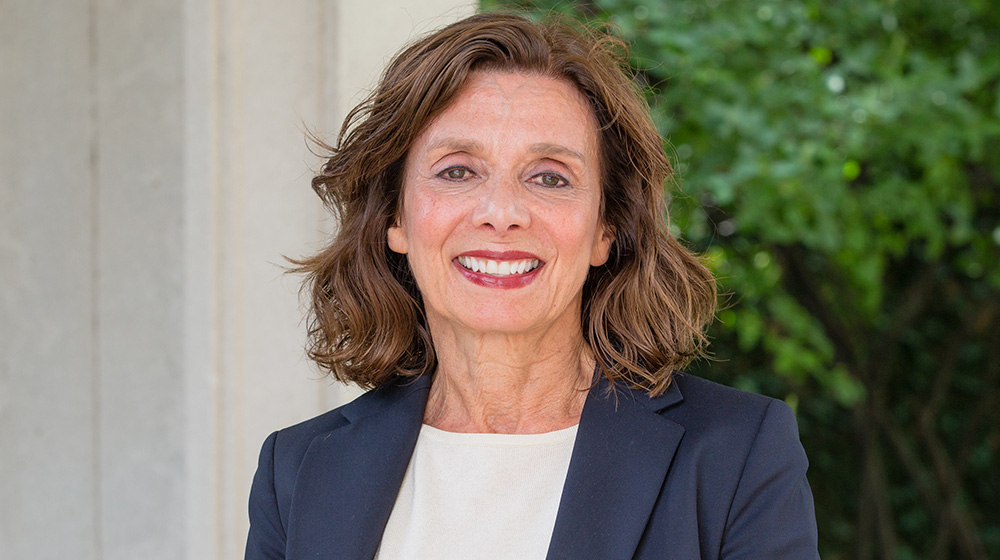
Joyce Wexler, PhD
Faculty Member
“We ask prospective faculty members to read Transformative Education in the Jesuit Tradition because it explains what we do and why we do it. New faculty members soon see how the Jesuit tradition strengthens their teaching and research and makes the University an incubator for meaningful and ethical lives.”
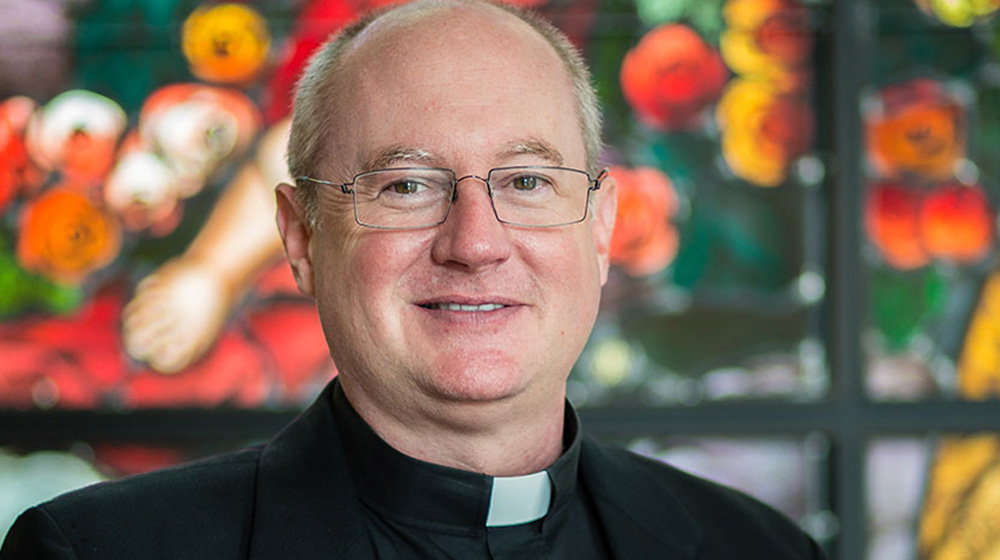
James Prehn, S.J.
Jesuit Community
“At its best, one of the hallmarks of Jesuit education is its embrace of innovation while retaining proven, valuable practices. We teach students to explore ideas without trepidation, to embrace responsibility for the world without reservation, and to honor their deepest desires as personalized gifts from God.”
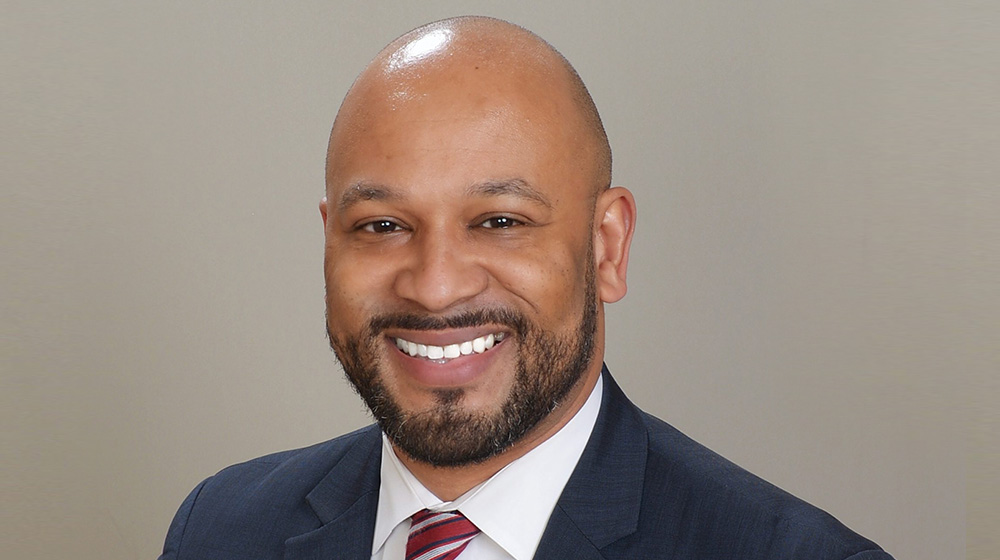
Antwan Turpeau
MSW ’11 • Alumni Community
“Loyola’s mission, seeking God in all things and its emphasis on learning, justice, and faith, really caught my attention. This is a university that is not only about academic learning; it’s also learning about life, learning from your mistakes, learning from your failures, and how to build on those.”
Concluding Refection
A UNIVERSITY CAN BE, and in many instances is, a mere composite of vastly different departments and conflicting perspectives. But a Jesuit, Catholic university hopes to move beyond these divisions into a vital interchange that constitutes an academic community of common question and purpose: What are we doing here for our students, our human community, and our world? What kind of contributions are we making with our research? How is our service making a difference in the world? How are we acting more for transformative justice? And, in the final analysis, how are we individually finding God in all things? These are the questions we want to ponder and continue to answer well into the future.
Still, we know this much for sure: that Loyola, as an academic community, aims to:
- Educate in a manner that empowers our students to live moral lives in the world today, assuming responsibility for their own wellbeing and for that of their neighbor;
- Conduct research that sheds light on the major problems facing our suffering world today, providing wisdom and insight into possible avenues of solution; and
- Serve the city and beyond in order to build up the just and caring community—acting more for transformative justice.
In summary, Loyola challenges its students to move beyond their comfort zone, not only when initially entering the University but all throughout their experience here, in order to see more clearly where their own hungers and talents meet the urgent needs of our world. As Frederick Buechner says, “The place God calls us to is the place where our deep joy and the world’s deep hunger meet.”
Students who have completed their degree with us will not only have the skills appropriate to their training but also will be people of moral integrity, grounded in faith, and motivated to give back to society what they have generously received. They will be ready to face the enormous challenges of our times with faith, hope, and love: faith as a vital dimension of human life, hope as a realistic human stance toward the world, and love as the supreme mission of human life in this world. In short, they will be prepared to lead extraordinary lives.
We are Chicago's Jesuit, Catholic University-- A diverse community seeking God in all things and working to expand knowledge in the service of humanity through learning, justice, and faith.
As a Catholic and Jesuit University, Loyola is guided by and seeks to articulate a living intellectual tradition. All of Loyola’s undertakings—its teaching, research, and service—are infused with a conviction regarding the sacred character of all reality, the dignity of every human person, the mutually informing dynamic between faith and reason, and the responsibility to care for those who are suffering most in our world. And Loyola’s Jesuit pedagogy is informed by the conviction that faith, knowledge, and the promotion of justice are intrinsically related: they are not three independent aspects of education that are merely juxtaposed, but rather they form a triad in which each is dynamically related and incomplete without the others. The University invites those of all faith traditions who share this outlook to join in pursuing its goals.
A UNIVERSITY CAN BE, and in many instances is, a mere composite of vastly different departments and conflicting perspectives. But a Jesuit, Catholic university hopes to move beyond these divisions into a vital interchange that constitutes an academic community of common question and purpose: What are we doing here for our students, our human community, and our world? What kind of contributions are we making with our research? How is our service making a difference in the world? How are we acting more for transformative justice? And, in the final analysis, how are we individually finding God in all things? These are the questions we want to ponder and continue to answer well into the future.
Still, we know this much for sure: that Loyola, as an academic community, aims to:
- Educate in a manner that empowers our students to live moral lives in the world today, assuming responsibility for their own wellbeing and for that of their neighbor;
- Conduct research that sheds light on the major problems facing our suffering world today, providing wisdom and insight into possible avenues of solution; and
- Serve the city and beyond in order to build up the just and caring community—acting more for transformative justice.
In summary, Loyola challenges its students to move beyond their comfort zone, not only when initially entering the University but all throughout their experience here, in order to see more clearly where their own hungers and talents meet the urgent needs of our world. As Frederick Buechner says, “The place God calls us to is the place where our deep joy and the world’s deep hunger meet.”
Students who have completed their degree with us will not only have the skills appropriate to their training but also will be people of moral integrity, grounded in faith, and motivated to give back to society what they have generously received. They will be ready to face the enormous challenges of our times with faith, hope, and love: faith as a vital dimension of human life, hope as a realistic human stance toward the world, and love as the supreme mission of human life in this world. In short, they will be prepared to lead extraordinary lives.
